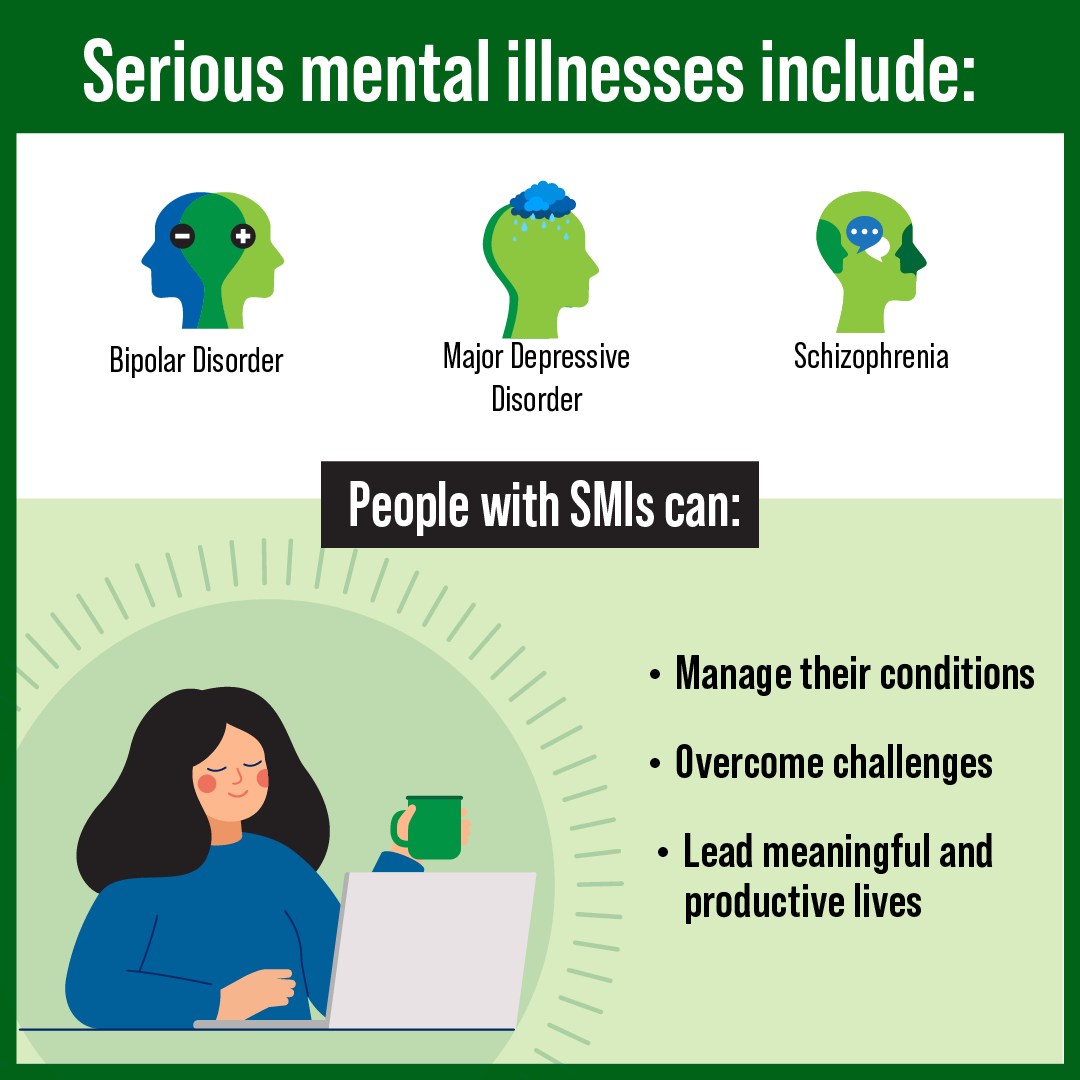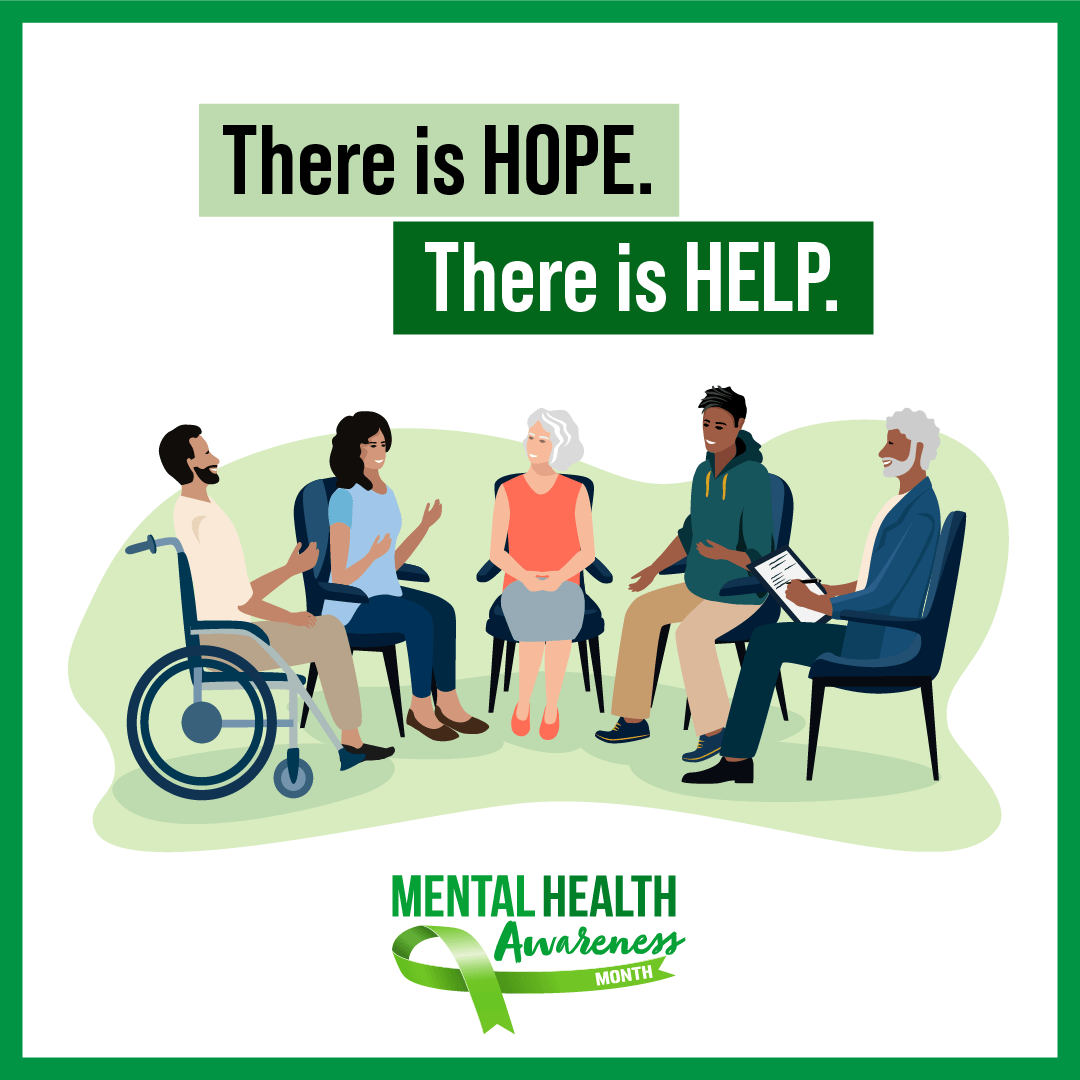Bringing Hope to Those Living with Serious Mental Illness
As we continue through Mental Health Awareness Month, Week 3 shines a critical light on individuals living with Serious Mental Illness (SMI) and Serious Emotional Disturbance (SED). These are not just clinical terms—they represent the lived realities of millions of people and families affected by conditions that can deeply impact daily life. Yet with the right support, healing and meaningful recovery are possible.
Understanding SMI and SED
The Substance Abuse and Mental Health Services Administration (SAMHSA) defines Serious Mental Illness as a diagnosable mental, behavioral, or emotional disorder resulting in serious functional impairment, substantially limiting one or more major life activities. This can include conditions such as:
Schizophrenia spectrum and other psychotic disorders
Bipolar disorder
Major depressive disorder
Severe PTSD and OCD
Serious Emotional Disturbance (SED) refers to similar impairments in children and adolescents under age 18, often affecting their ability to function in school, at home, or in community settings.
The Importance of Early Intervention and Ongoing Support
Research consistently shows that early detection and a sustained, person-centered treatment plan can make a profound difference in outcomes. According to the National Institute of Mental Health (NIMH), timely access to treatment is one of the strongest predictors of recovery.
Evidence-based treatments—such as Cognitive Behavioral Therapy (CBT), Dialectical Behavioral Therapy (DBT), Acceptance and Commitment Therapy (ACT), medication management, family psychoeducation, and Assertive Community Treatment —can help individuals manage symptoms, reduce hospitalizations, and regain autonomy.
Detecting Early Signs of SMI and SED
Early detection of Serious Mental Illness (SMI) in adults and Serious Emotional Disturbance (SED) in children and adolescents is crucial for timely support and improved outcomes.
Common early signs include:
Noticeable changes in mood, behavior, or functioning, such as:
Withdrawal from social interactions
Intense or prolonged emotional distress
Difficulty concentrating
A decline in daily responsibilities or academic performance
Changes in sleep or appetite
Expressions of hopelessness or unusual thoughts
Isolation or Withdrawal
Changes in energy levels
For youth:
Persistent tantrums
Aggression
Extreme fears
Isolation or Withdrawal from family and friends
These can signal underlying emotional disturbances.
Recognizing these signs early can help individuals access appropriate mental health care before symptoms worsen.
Recovery Is Possible—and It Looks Different for Everyone
Living with SMI or SED does not mean living without hope. People with these conditions can and do recover—not necessarily by eliminating all symptoms, but by leading meaningful lives, building relationships, working, and pursuing personal goals.
Recovery-oriented care focuses not just on symptom reduction, but on empowerment, dignity, and self-determination. Peer support, case management, and integrated care models (addressing both mental and physical health) are all essential pillars of this process.
“Recovery is not a linear path. It is a journey of resilience, hope, and growth—often supported by community and connection.”
How We Can Support Those Living With SMI and SED
Whether you're a loved one, a friend, or a mental health professional, here’s how you can be part of the solution:
Challenge stigma by speaking openly and compassionately about mental illness
Educate yourself on how symptoms manifest and how to respond with empathy
Encourage help-seeking without judgment
Promote holistic care that includes housing, employment, and community integration
Be a consistent support, even when progress seems slow
If you're a parent or caregiver to a youth experiencing SED, it’s crucial to seek professional help early and to engage with schools, pediatricians, and counselors for collaborative care.
If you or someone you know is facing challenges related to mental health or addiction, please remember that you’re not alone—help is available. Counseling in the Holler LLC offers support for individuals in Kentucky, including children and adolescents aged 7-17, as well as adults aged 18 and older. Don't hesitate to reach out for assistance.
Resources for Support
Here are some reputable organizations and tools that can offer guidance, education, and help:
SAMHSA’s SMI Adviser – Clinical resources for providers and support for individuals and families
National Alliance on Mental Illness (NAMI) – Peer support, education, and advocacy resources
National Institute of Mental Health (NIMH) – Evidence-based research on SMI
Mental Health America – Screening tools and community programs
Final Thoughts: Hope Is a Lifeline
Mental illness does not define a person—it’s one part of their experience. By building inclusive, informed, and compassionate communities, we help create the foundation for recovery and resilience.
If you or someone you love is struggling with symptoms of SMI or SED, know that you are not alone. Reach out. Help is available, and recovery is possible.
📞 If you are in crisis, call or text 988 for the Suicide & Crisis Lifeline.



